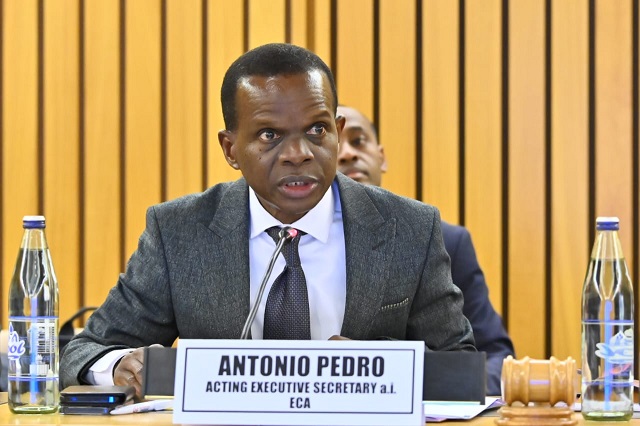
Addis Ababa, Ethiopia | Xinhua | The implementation of the African Continental Free Trade Area (AfCFTA) agreement should be expedited as the free trade zone will boost intra-African trade and accelerate industrialization, the UN Economic Commission for Africa (ECA) Acting Executive Secretary Antonio Pedro has said.
“While the AfCFTA’s promise is high, that promise can be realized only if the agreement is implemented efficiently,” a UNECA statement issued Wednesday quoted Pedro as saying.
Pedro said that implementing the AfCFTA Agreement and supporting African economies, particularly Least Developed Countries (LDCs), “was no small task.”
The AfCFTA holds great promise to help LDCs recover and accelerate growth, Pedro said, citing a recent UNECA empirical assessment that reveals the successful implementation of the continental free trade pact will positively impact Africa’s GDP, trade and welfare.
He said with the AfCFTA agreement in place, intra-African trade could be 34 percent higher in 2045 than without the AfCFTA in the same year.
According to Pedro, the effective implementation of the AfCFTA agreement will help Africa industrialize and diversify away from the energy and mining sectors.
The UNECA said it is facilitating the deepening of Africa’s participation in the battery and electric vehicle value chains through current investment projects in the Democratic Republic of the Congo (DRC) and Zambia. It said work on the transboundary agro-industry park and special economic zone involving Zimbabwe and Zambia was promising and it would equip the two land-locked and least developed countries to become bread baskets for Southern Africa and possibly Africa.
Pedro said the successful implementation of the AfCFTA agreement would help build Africa’s resilience and potentially reduce its current trade dependence on external partners.
This was critical in light of the vulnerabilities exposed by the COVID-19 pandemic and the conflict in Ukraine. Africa needs to mitigate the potential negative impacts of future external shocks, he said.
 The Independent Uganda: You get the Truth we Pay the Price
The Independent Uganda: You get the Truth we Pay the Price



